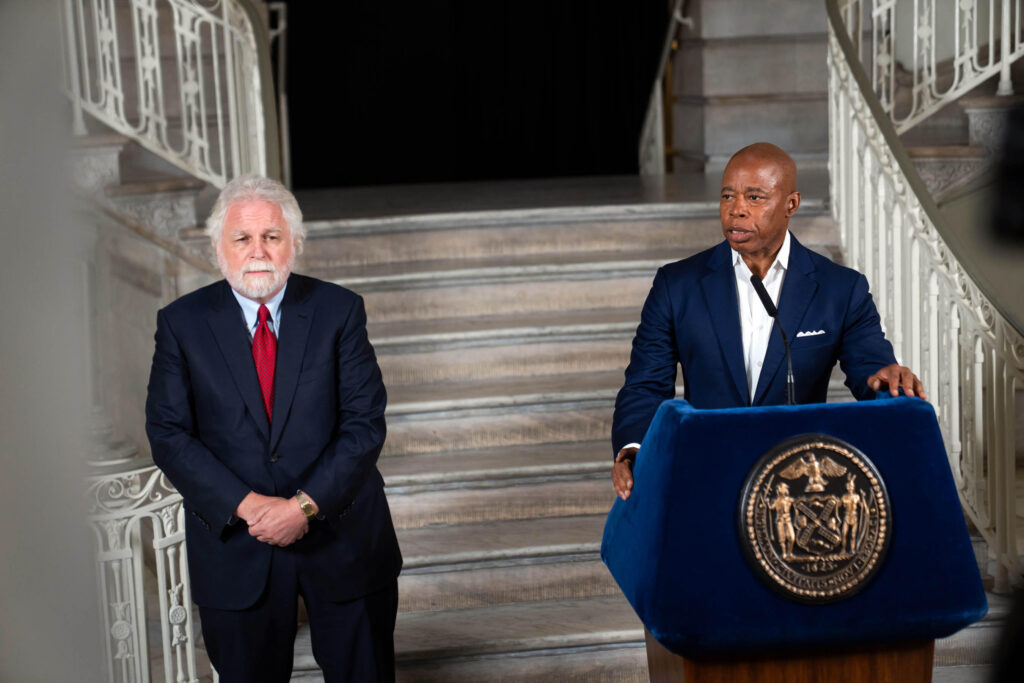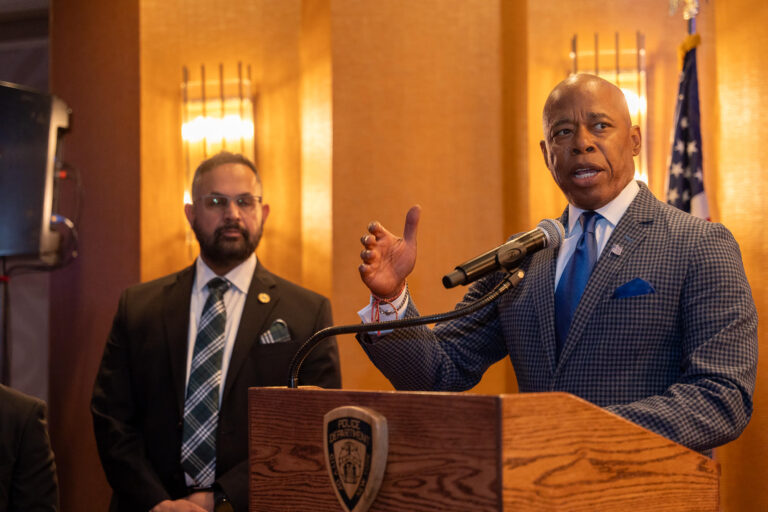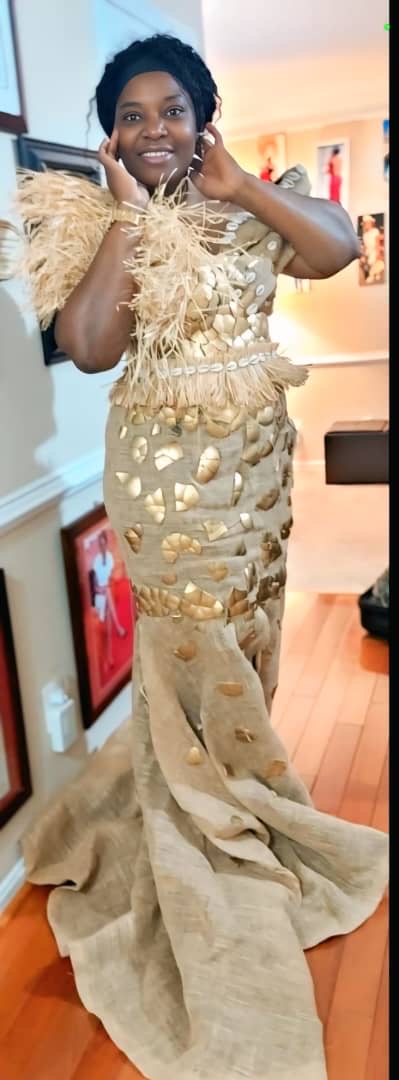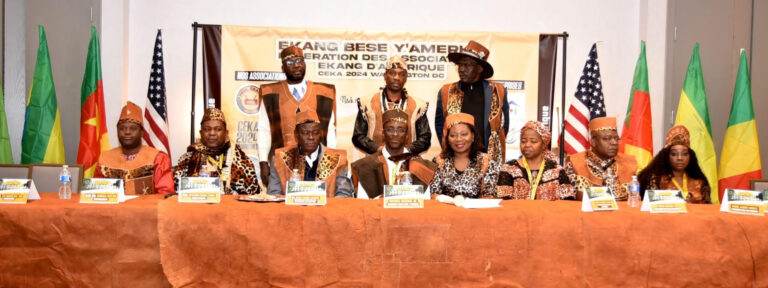
Gathered for the first time at the New York State Capitol, dozens of professional braiders spoke out against burdensome licensing requirements. A powerful demonstration in support of a new bill aimed at recognizing ancestral skills and protecting immigrant livelihoods.
ALBANY, NY — May 13, 2025 – Dressed in vibrant traditional African attire and holding colorful signs, more than 65 African hair braiders rallied on the steps of the New York State Capitol. Joined by lawmakers, advocates, and community leaders, the women called on the legislature to pass bills S.5438 (Cleare) and A.6529 (Hunter), which would ease licensing requirements for natural hair stylists in New York.
This was a historic moment: for many participants, it marked their first time engaging with state lawmakers, and their first time taking their profession into the public policy arena. Their message was clear the current system is unfair, inaccessible, and deeply disconnected from their lived reality.
A System That Fails to Reflect Reality
Under current state law, anyone wishing to legally practice hair braiding in New York must:
- complete 300 hours of training,
- pass both a written and a practical exam,
- undergo a medical exam,
- and navigate an application process that is available only in English.
“For too long, African women hair braiders have been required to pay thousands of dollars to learn a skill they already possess,” said Maimouna Dieye, New York Director of African Communities Together (ACT). “They are not asking for special treatment, but for respect and dignity. They want fair access to a license so they can work legally and support their families without fear.”
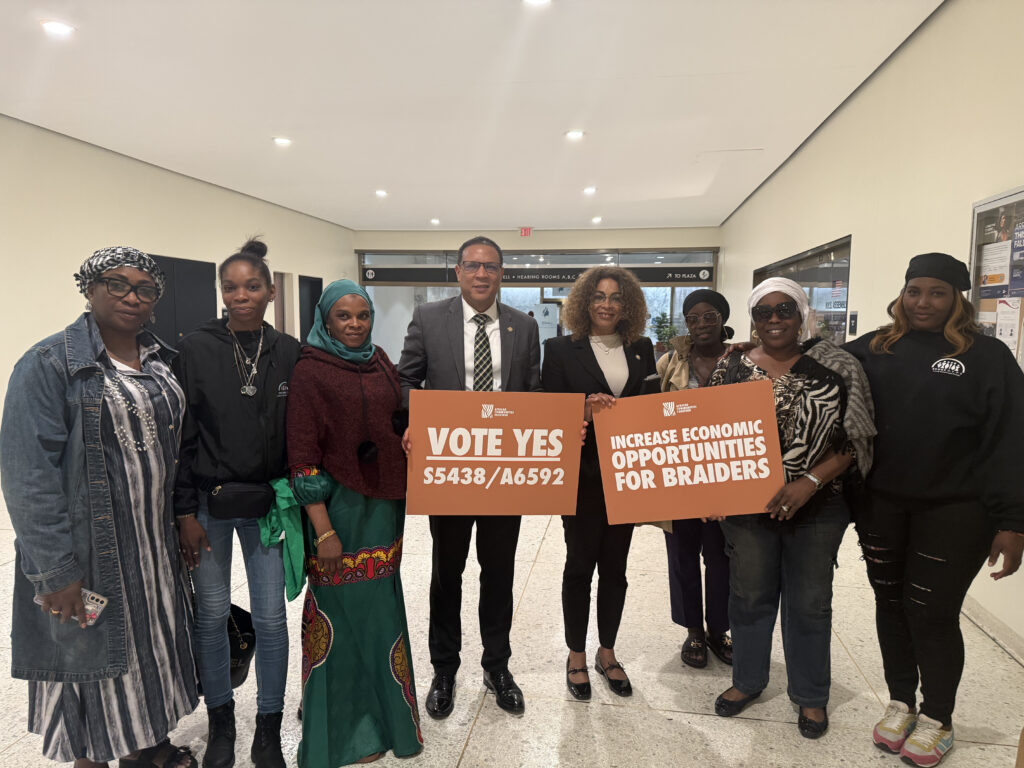
In a hallway of the New York State Senate in Albany on May 13, 2025, M YULDEKA TAPIA and George Alvarez stand with a group of African hair braiders advocating for fair reform of the natural hair styling license requirements in New York State.
For many immigrant women, especially those with limited English proficiency or formal education, the current licensing system acts as a barrier rather than a bridge. As Robert Agyemang, Vice President of Advocacy at the New York Immigration Coalition, pointed out:
“These women are seasoned entrepreneurs and skilled artists who’ve worked for decades. It’s time the law recognized their value.”
A Reasonable and Balanced Reform
The two bills currently under consideration aim to update Article 27 of New York’s General Business Law, to reflect the actual practices and needs of braiders. The reforms would:
- reduce training requirements from 300 to 40 hours, focusing on health and safety,
- allow applicants to take the practical exam in their native language,
- provide all materials and forms in multiple languages,
- and legally define the scope of braiding work.
“Braiders in my district know their craft better than anyone,” said State Senator Cordell Cleare. “They deserve a licensing process that is fair, rational, and rooted in the real world.”
“Most braiders only earn money when they work,” added Assemblymember Pamela Hunter, who co-sponsored the bill. “The current system is unnecessarily burdensome and especially harmful to immigrant women trying to earn an honest living.”
Braiding as Culture, Identity, and Resistance
Hair braiding is more than a profession. For many African and diasporic women, it’s a powerful cultural symbol passed from generation to generation.
“I’ve been braiding hair since I was 12,” said Ramatoulaye Ngom, a professional braider based in Harlem. “My mother taught me using dried corn leaves wrapped in a bottle. That’s how every girl back home learns. This work helps me honor my roots and care for my family.”
“Braiding is a source of pride, of womanhood, and of connection to our ancestors,” emphasized one of the board member , New York State Policy Manager at ACT. “But the very women who helped make this craft popular in the U.S. are now being pushed out by unfair regulations.”
A Grassroots Movement for Economic Dignity
For most participants, the Albany rally was their first political action. Yet their determination and collective strength sent a powerful message.
“We saw a united community, ready to be heard,” said Omoragbon. “There’s no better time than now to reform this outdated system.”
Many braiders also shared how the lack of a license leads to mistreatment and social stigma.
“Some clients assume we aren’t licensed, so they disrespect us,” said Massandje Doukouré, a braider from New York City. “One even injured my forehead. We want to work in peace with autonomy, respect, and legal recognition.”
If passed, the Cleare/Hunter legislation would not only simplify the path to licensure it would signal a broader shift toward recognizing informal expertise, cultural legacy, and immigrant entrepreneurship as essential pillars of New York’s economy.
“This is about fairness, not favors,” Dieye concluded. “Our community deserves to thrive—not hide.”



